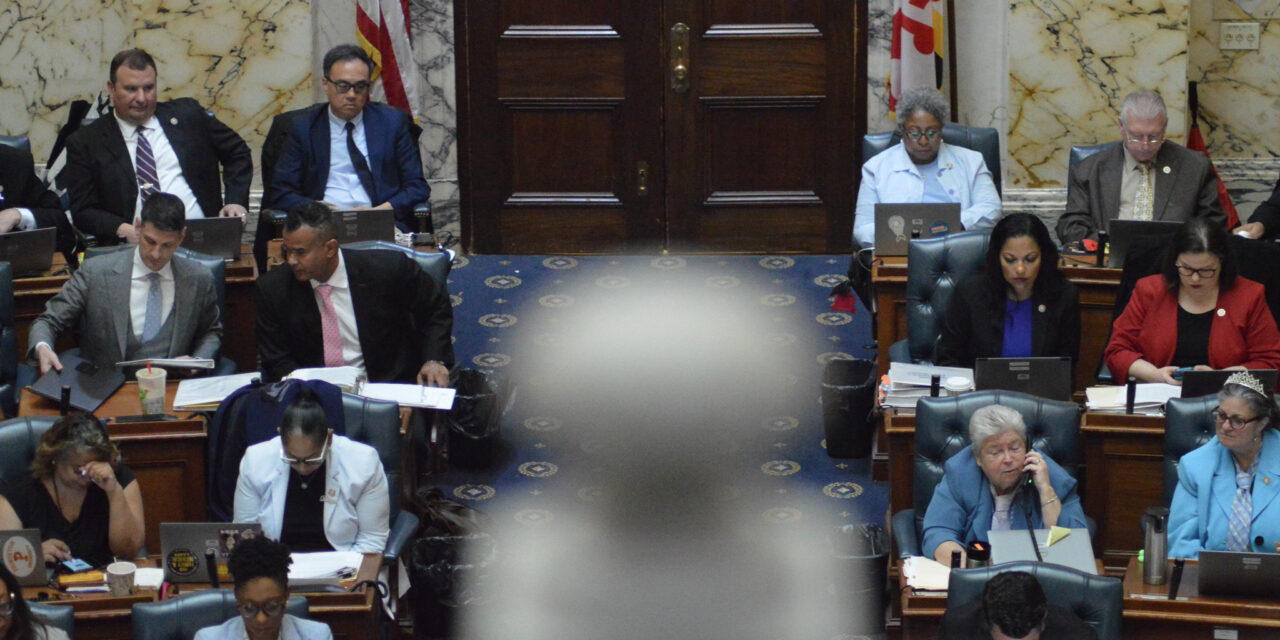By EMMA TUFO
ANNAPOLIS – To the relief of most state officials, the Maryland General Assembly ended its tense budget cycle this week and passed a balanced spending plan for the coming year.
Now the question is whether that relief will extend beyond the halls of power to working families and middle-class residents of the state.
The Democratic administration of Gov. Wes Moore and Lt. Gov. Aruna Miller argues that it will.
“We know this session has been tough,” Miller said Tuesday. “It’s been shaped by a tough budget, challenging realities and hard decisions. But it’s also grounded in a shared commitment to expand opportunity and invest in our people.”
But Republicans say the budget plan is too harsh on too many Maryland residents. Senate Minority Whip Justin Ready, a Republican representing Carroll and Frederick Counties, said the state should have focused more on cutting costs.
“I think we need to have the attitude of being much more willing to reexamine everything that we’re doing in state government long-term,” Ready said, “because we cannot continue to raise the tax burden and the cost of living on working families.”
In the end, Democratic leaders managed to close a significant structural deficit through almost $2 billion in spending cuts and $1.6 billion in tax changes. To help do so, they raised income taxes on Maryland’s higher earners.
Moore’s stated goal at the beginning of the budgeting season was, among other things, to bring about a fairer system of taxation.
“Under current law, our system just isn’t fair,” Moore said in his February State of the State address. “Right now, someone making $30 million a year is in the same tax bracket as a family making $300,000.”
Three months later, the final budget agreement means that 94% of tax filers will be paying the same or less than they paid before, according to a summary report from the budget committee. The structural gap projected for fiscal year 2027 is now under $150 million, down from $2.9 billion.
The budget agreement raises the rate for taxpayers in two new income tax brackets: one for single filers making over $500,000 and another for those earning over $1 million. The budget has gone to Moore’s desk for consideration, and he is expected to sign it in the coming days.
As Democrats see it, their budget strategy prioritizes quality of life for more people.
Senate President Bill Ferguson, a Democrat representing Baltimore City, says the budget plan works because it invests in education, health care and environmental protection. He said it also offers support for vulnerable communities.
“We are trying to make sure that vulnerable seniors have a place to go to the hospital, that they have care that they need, and that our most disabled are able to get the services that they deserve, in order to live a fulfilling life,” Ferguson told reporters. “The budget as a whole is investing to make sure that people have the quality of life that they deserve.”
At the same time, Senate Budget and Taxation Committee Vice Chair Jim Rosapepe argues that federal politics are to blame for much of the state’s trouble, with declining federal funding and mounting job losses among Maryland-based federal workers.
“It’s been challenging, but we’ve had state budget issues before,” said Rosapepe, a Democrat representing Prince George’s and Anne Arundel Counties. “We’ve had national recessions before. We’ve never had a president of the United States want to take a chainsaw to our economy and a chainsaw to the American legal system, a chainsaw to veterans benefits and Social Security benefits and Medicare benefits. I’ve never seen that before.”
Republicans, meanwhile, are concerned that new taxes and fees will hit not just high-income earners but also businesses – as well as the people they serve and employ.
The budget now allocates $500 million to the state’s Transportation Trust Fund. Revenue for that fund will come from increases to vehicle excise taxes, title fees, registration fees and the new $5 tire fee. Among the largest of the new taxes and fees is a 3% sales tax on technology services, such as software publishing and data processing.
Del. Mark Fisher, a Republican representing Calvert County, argued this week that these fees will hit working-class commuters the hardest.
“When you have a war on cars, you have a war on the middle class,” said Fisher. “You’re waging war on the middle class, waging war on cars, and at the same time saying you’re not getting a tax increase if you’re in the middle class.”
House Minority Leader Jason Buckel, a Republican representing Allegany County, said the budget places too much of the financial burden on Marylanders and businesses.
“We are raising the taxes and fees on every single person and every single business that you know, from the poor to the middle class to the upper middle class,” Buckel told his colleagues on the floor this week. “This will be the worst vote that almost any of you have ever taken.”



Recent Comments